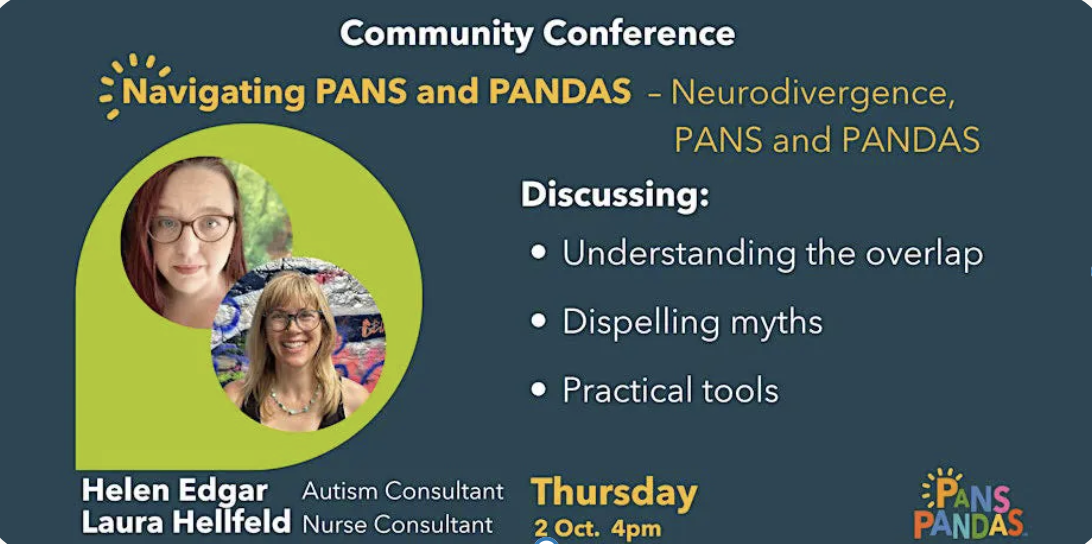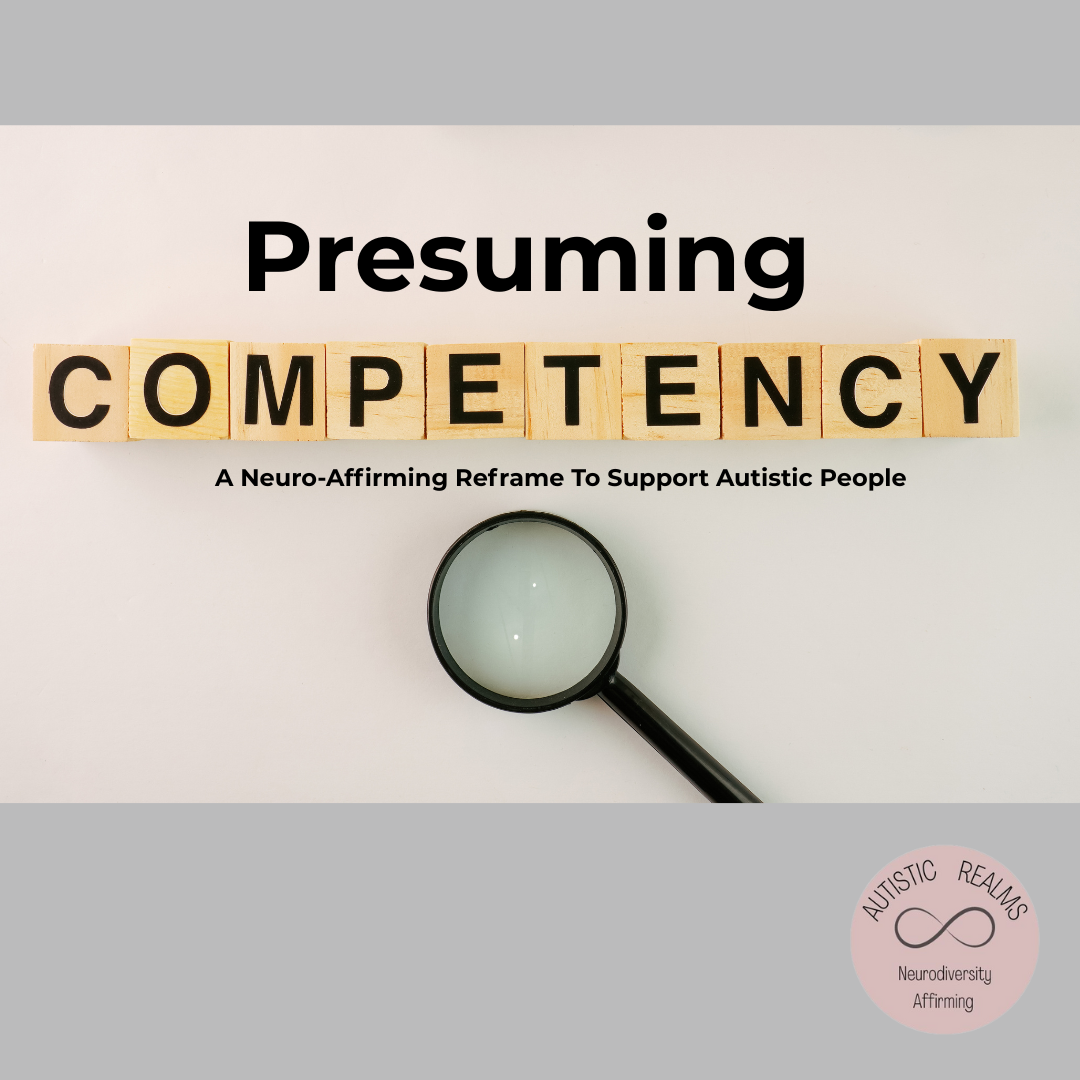Your basket is currently empty!

Navigating PANS/PANDAS & Neurodivergence
Laura Hellfeld (RN, MSN, PHN, CNL) wrote this article and created the resources. I edited the article for Autistic Realms in October 2025 and supported the development of Laura’s resources.
Connect with Laura on social media:
LinkedIn, Instagram, Facebook and BlueSky
Disclaimer: The information shared in this blog is for informational purposes only and is not intended to replace medical advice, diagnosis, or treatment. Please consult a licensed healthcare provider for personalised support and care tailored to your specific needs.
Signposting and Resources
- PANS/PANDAS UK
- PANS/PANDAS frequently asked questions
- PANS Life Facebook page
- PANS Australia and PANS Australia Facebook page
- PANS PANDAS Foundation Ireland
- PANS PANDAS Education with Shara Virlan
The following list was collated and shared by Romy Worthington
- Romy’s PANDAS/PANS and OCD Youtube Playlist: https://www.youtube.com/playlist?list=PL39925jJXko0mAIEKiO9k9TwOdKl9tJ4M
- Romy’s Instagram page with a lot of PANDAS/PANS posts: https://www.instagram.com/chronic.advocate?utm_source=ig_web_button_share_sheet&igsh=ZDNlZDc0MzIxNw==
- Information on antibiotics for PANDAS/PANS: https://www.pandasppn.org/antibiotics/
- Royal College of Nursing PANDAS/PANS information: https://www.rcn.org.uk/news-and-events/Blogs/pans-pandas-a-mysterious-and-debilitating-paediatric-disorder-180523
- When specific foods trigger brain inflammation in children: https://www.lymedisease.org/members/lyme-times/2023-summer-news/foods-trigger-brain-inflammation/
- Patient stories of brain inflammation: https://braininflammation.org/patient-stories/
- A parent talking about the importance of antiviral treatment when antibiotics don’t work: https://www.linkedin.com/posts/emiliametzel_weeklypans-activity-7192897265559097344-fDqn?utm_source=share&utm_medium=member_desktop
- Food Sensitivities: https://theconversation.com/people-can-have-food-sensitivities-without-noticeable-symptoms-long-term-consumption-of-food-allergens-may-lead-to-behavior-and-mood-changes-192570
- Finding a doctor:
- The Children’s E-hospital, Dr Ubhi: https://drtimubhi.com
- PANS PANDAS UK Facebook group: https://aspire.care/treating-pans/medications/
- Information on false FII allegations: https://panspandasuk.org/support-resources/safeguarding-and-fii/
- Stanford medicine PANS PANDAS Q&A: https://med.stanford.edu/pans/about/Q-and-A.html
- A Q&A with an expert on PANS and Lyme: https://neuroimmune.org/dr-shannon-delaney-interview/
- Info on Lyme testing: https://arminlabs.com/en/diseases/bacteria/lyme-borreliosis
- PANS PANDAS UK facebook group: https://www.facebook.com/groups/189721514954497
Find out more about Neurodivergence and PANS/PANDAS
Latest Posts
-
Autistic Burnout – Supporting Young People At Home & School

Autistic burnout in young people is real—and recovery starts with understanding. This post offers neuroaffirming ways to spot the signs, reduce demands, and truly support. 💛 #AutisticBurnout #Neuroaffirming #Monotropism #AutisticSupport
-
Monotropic Interests and Looping Thoughts

The theory of monotropism was developed by Murray, Lawson and Lesser in their article, Attention, monotropism and the diagnostic criteria for autism (2005). Monotropism is increasingly considered to be the underlying principle behind autism and is becoming more widely recognised, especially within autistic and neurodivergent communities. Fergus Murray, in their article Me and Monotropism:…
-
Map of Monotropic Experiences

Monotropism seeks to explain Autism in terms of attention distribution and interests. OSF Preprints | Development and Validation of a Novel Self-Report Measure of Monotropism in Autistic and Non-Autistic People: The Monotropism Questionnaire This map highlights 20 common aspects of my personal monotropic experiences. How many do you experience? Where are you on the map…
-
Autistic Burnout – Supporting Young People At Home & School

Being autistic is not an illness or a disorder in itself, but being autistic can have an impact on a person’s mental and physical health. This is due to the often unmet needs of living in a world that is generally designed for the well-being of people who are not autistic. In addition, three-quarters of…
-
The Double Empathy Problem is DEEP

“The growing cracks in the thin veneer of our “civilised” economic and social operating model are impossible to ignore”, Jorn Bettin (2021). The double empathy problem (Milton, 2012) creates a gap of disconnect experienced between people due to misunderstood shared lived experiences. It is “a breakdown in reciprocity and mutual understanding that can happen between people…
-
Top 5 Neurodivergent-Informed Strategies

Top 5 Neurodivergent-Informed Strategies By Helen Edgar, Autistic Realms, June 2024. 1. Be Kind Take time to listen and be with people in meaningful ways to help bridge the Double Empathy Problem (Milton, 2012). Be embodied and listen not only to people’s words but also to their bodies and sensory systems. Be responsive to people’s…
-
Autistic Community: Connections and Becoming

Everyone seeks connection in some way or another. Connections may look different for autistic people. In line with the motto from Anna Freud’s National Autism Trainer Programme (Acceptance, Belonging and Connection), creating a sense of acceptance and belonging is likely to be more meaningful for autistic people than putting pressure on them to try and…
-
Monotropism, Autism & OCD

This blog has been inspired by Dr Jeremy Shuman’s (PsyD) presentation, ‘Neurodiversity-Affirming OCD Care‘ (August 2023), available here. Exploring similarities and differences between Autistic and OCD monotropic flow states. Can attention tunnels freeze, and thoughts get stuck? Autism research is shifting; many people are moving away from the medical deficit model and seeing the value…
-
Monotropism Questionnaire & Inner Autistic/ADHD Experiences

Post first published 28th July 2023 Over the past few weeks, there has been a sudden surge of interest in the Monotropism Questionnaire (MQ), pre-print released in June 2023 in the research paper ‘Development and Validation of a Novel Self-Report Measure of Monotropism in Autistic and Non-Autistic People: The Monotropism Questionnaire.‘ by Garau, V., Murray,…
-
Penguin Pebbling: An Autistic Love Language

Penguin Pebbling is a neurodivergent way of showing you care, like sharing a meme or twig or pretty stone to say “I’m thinking of you,” inspired by penguins who gift pebbles to those they care about.
-
Presuming Competence: A Neuro-Affirming Reframe To Support Autistic People

When “presume competence” is applied without a neuro-affirming lens, it can become a harmful, ableist expectation
-
Ethics & Values of Autistic Realms

Autistic Realms is grounded in values of authenticity, autonomy, and relational care for the human rights of Autistic or otherwise neurodivergent and disabled people. These guiding principles align closely with the ethics and principles of both the Therapist Neurodiversity Collective (TNDC) and the Autistic Self Advocacy Network (which I am a member of – ASAN),…
-
Inclusion Needs Recognition, Not Erasure: A Neurodiversity-Affirming Approach

When headlines claim that autism and ADHD are “invented labels,” it’s more than rhetoric, it’s erasure. A explores why removing neurodiversity from education would harm the very children inclusion is meant to protect.













